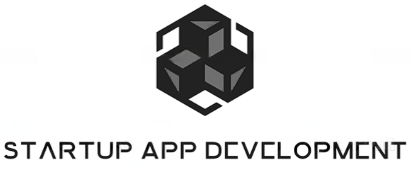Hiring the right app developer is crucial for the success of your project. However, the process can be tricky, especially if you’re not familiar with the common pitfalls that can occur during recruitment. Whether you’re a startup looking to build your first app or an established company expanding your digital presence, this guide will help you navigate the hiring process more effectively by outlining mistakes to avoid.
1. Neglecting to Define Project Requirements
One of the biggest mistakes you can make is not clearly defining your project requirements before starting the hiring process. Without a clear understanding of what you need, you risk hiring someone who isn’t the right fit for your project. Key aspects such as the app’s purpose, target audience, and core functionalities should be sketched out well in advance. This foundation not only helps in selecting candidates but also aids in setting realistic timelines and budget expectations. Lack of clarity can lead to misaligned expectations and, ultimately, project delays.
Beyond basic functionalities, consider the specific skills required for your project. Does it involve complex integrations or the use of emerging technologies? Providing detailed requirements and a clear project roadmap can signal to potential candidates that you have a well-thought-out plan, fostering enthusiasm and attracting highly qualified developers.
2. Overlooking Cultural Fit
Cultural fit is often overlooked yet remains a key factor in team cohesion and productivity. A developer who aligns with your company’s values and work culture will work more harmoniously and productively with your team. Effective communication and collaboration stem from shared understanding, which can be markedly absent if cultural differences become barriers.
It’s also important to consider the team’s dynamic. A strong cultural fit fosters a sense of belonging and motivation, enabling developers to contribute creatively and proactively. Ask about a candidate’s preferred work environment and assess their adaptability to your company’s ethos during interviews. This step can mitigate potential friction and encourage sustainable working relationships.
3. Focusing Solely on Technical Skills
While technical prowess is essential, it’s not the only thing that matters. Problem-solving skills, creativity, and communication abilities can be equally critical in ensuring a project’s success. Consider a scenario where complex issues arise, requiring innovative problem-solving beyond textbook solutions; this is where non-technical skills prove invaluable.
Evaluating candidates for their ability to work in diverse team settings and communicate complex ideas to a non-technical audience can often mark the difference between a good and an exceptional hire. Keep in mind, a well-rounded candidate contributes not only to code output but also to the whole ecosystem of the application development cycle.
4. Ignoring Previous Experience and References
A candidate’s previous work experience and references can provide valuable insights into their capabilities and reliability. Always check these aspects thoroughly to avoid unpleasant surprises later. A review of their past projects can reveal their working style, areas of expertise, and how they handle challenges.
Beyond the resume, contact past clients or employers for direct feedback. Ask about the developer’s ability to meet deadlines, quality of work, and their role in successful project outcomes. This invaluable feedback can be the deciding factor, especially when choosing between equally talented candidates.
5. Not Setting Clear Expectations
Clearly defining your expectations regarding timelines, deliverables, and communication protocols can prevent misunderstandings down the line. Make sure these are discussed and agreed upon in advance. An initial alignment meeting can clarify expectations for both parties, providing a roadmap that everyone understands.
An important aspect of setting expectations is creating a mutual understanding of project phases and milestones. Establish guidelines for progress tracking, feedback sessions, and regular updates to ensure transparency. Both the developer and you should have a shared vision of success, reducing the likelihood of mid-project conflicts or deviations from the original objectives.
6. Underestimating the Importance of a Portfolio
A strong portfolio allows you to assess a developer’s past work quality and innovation. Don’t skip this crucial step in evaluating their potential contribution to your project. Reviewing a portfolio not only shows what a developer can do but also their style and approach to app aesthetics and user experience.
Pay special attention to projects similar to yours in complexity or domain; these can give valuable insights into their problem-solving methods. By comparing the requirements and outcomes of these projects, you can gauge how well the developer’s skills will integrate with your project needs.
7. Rushing the Recruitment Process
Rushing to fill the position can lead to poor hiring decisions. Take your time to vet candidates thoroughly to ensure they are truly the best fit for the job. The pressure of quickly filling a role shouldn’t override the need for a comprehensive evaluation process.
Crafting well-planned interview stages and involving varied stakeholders in the decision-making process can lead to better outcomes. Consider implementing technical tests or trial project assignments to accurately assess a candidate’s skills. This approach can also reveal how the candidate handles actual project constraints and deadlines.
8. Failing to Negotiate Salaries Competently
Salary negotiations can be tricky, but it’s essential to execute them well to avoid losing high-quality candidates. Do market research to offer competitive compensation packages. Understanding the current salary trends for your area and industry can equip you with the knowledge needed to make solid offers.
Remember, compensation isn’t just about salary; it includes perks, benefits, and work-life balance, which can be attractive to prospective hires. Consider flexibilities like remote work options, professional development opportunities, and career progression paths, which can be pivotal in making an offer compelling.
9. Overlooking the Importance of Location
Hiring developers in or near DC can provide advantages such as accessibility for in-person meetings and a better understanding of the local market dynamics, which can be crucial for project success. Local developers may also have an existing network and resources within the region that can be beneficial to your project.
Moreover, shared time zones facilitate real-time communication and contribute to fewer delays in project timelines. A local presence can also foster a deeper commitment to projects intended to serve the regional market, enhancing both motivation and output quality.
10. Underestimating the Value of Communication
Good communication is key in every project. Developers who communicate effectively can provide timely updates, identify potential issues early, and collaborate better with other team members. A proactive communication approach eliminates ambiguities and fosters a responsive work environment.
Consider establishing structured communication plans with regular check-ins and feedback loops. Encourage open dialogue, where concerns can be raised and addressed swiftly. A developer who excels in these soft skills can seamlessly integrate within the team, enhancing the overall project efficiency and outcomes.


